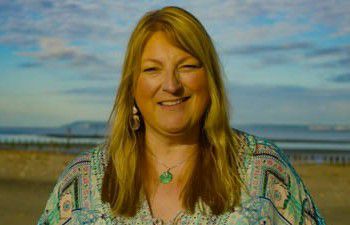Five minutes with Marianne Glascott: “The Adam Weiler award has given me the confidence to push my ideas further”
Posted on behalf of: Internal Communications
Last updated: Thursday, 6 November 2025

Marianne Glascott
Marianne Glascott, Postgraduate Researcher in the School of Life Sciences, was one of four winners of this year’s Adam Weiler PGR Impact Award which celebrates outstanding academic impact. We hear from Marianne about her innovative kelp research and what’s next after her doctorate.
I study our local kelp species, focusing on how environmental pressures – from pollution and suspended sediments to broader factors such as temperature and light – affect their survival and resilience. Kelp forests are vital to coastal ecosystems: they provide habitat, protect shorelines, and store carbon, yet their recovery is often threatened by human impacts. My research centres on kelp spore motility as an innovative early warning tool for ecotoxicology (which looks at the nature and effects of substances that are harmful to the environment). By detecting subtle effects, these methods provide a more ethical and scalable alternative to traditional testing models.
I want my work to reshape how we assess and manage risks in the marine environment. Primary producers such as kelp are often overlooked in ecotoxicology and policy, yet they underpin entire ecosystems. By showing how kelp responds to multiple pressures, from pollutants to broader environmental changes, my research can inform smarter conservation and restoration strategies. I hope it will influence local and national policy, while also providing a case study to guide international approaches. Ultimately, my aim is to ensure science translates into practical tools for protecting coastal ecosystems.
The Adam Weiler PGR Impact Award was a real honour and an enormous encouragement. Research can sometimes feel like a long and solitary journey, so to have the value of my work recognised by the University means a great deal. The award has given me the confidence to push my ideas further and to think ambitiously about their impact. It also brings visibility to kelp research, which is still underrepresented compared to other ecosystems, and reminds me that the work we do here in Sussex resonates well beyond the lab.
I love the sense of being surrounded by nature at Sussex; the Downs on one side and the sea on the other. Walking across campus in the morning, it feels both peaceful and energising. One of my favourite places is the wild garden outside the John Maynard Smith building, where there’s always a lively mix of people, conversation, and ideas. It’s a reminder that research doesn’t exist in isolation but thrives in a community of curious, engaged people, and Sussex provides that atmosphere in a very special way.
Outside research, life is very much centred on family – my husband, our three adult sons, and our rather lively dogs. Walks with the dogs are grounding and restorative and often spark new ideas. I also enjoy the rhythm of smallholding and the creativity of bringing people together over homegrown food. Supporting my sons as they forge their careers in archaeology, the emergency services, and the performing arts is a big part of my life. Music is another outlet, whether listening or sharing moments together at home. These things bring balance, joy, and connection beyond the PhD.
In the immediate future, I’ll be completing the final year of my PhD and preparing several publications on kelp ecotoxicology. Beyond that, I hope to continue working in marine research and conservation, ideally combining academic science with practical impact. I’d like to build collaborations that bridge the gap between research, policy, business and community action – ensuring that science doesn’t just sit on the page but helps shape real change. Personally, I’m also looking forward to taking a breath after my doctorate and spending more time outdoors with my family.
